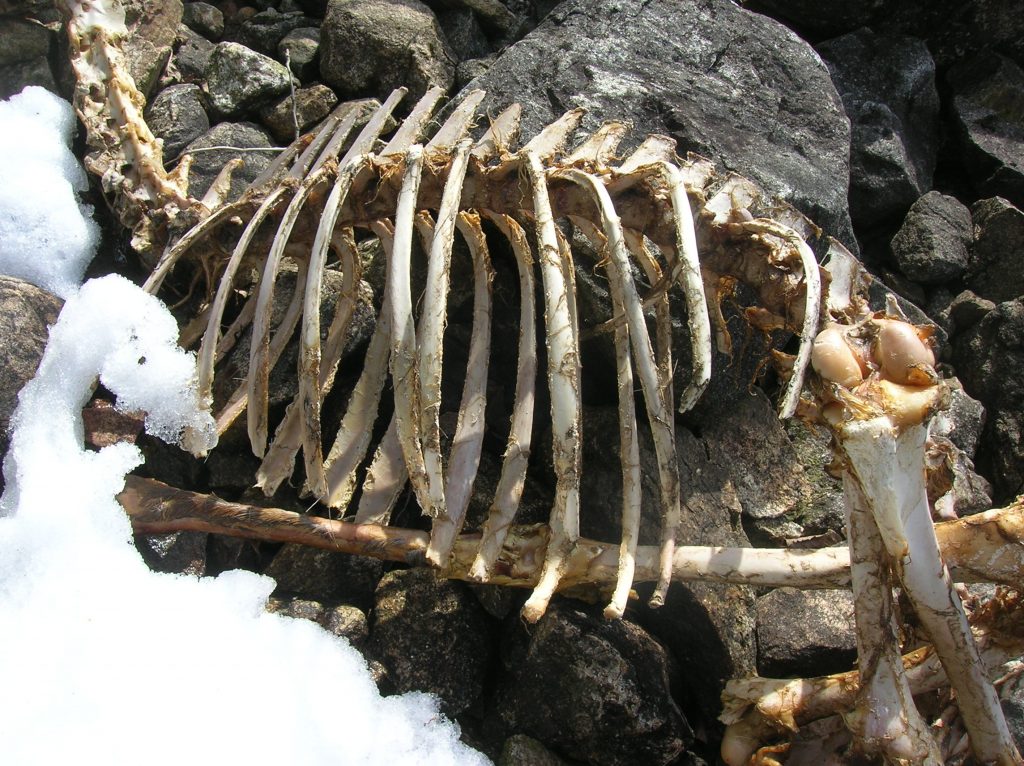“Yom Hashoah in Florida,” by Rick Hilles, appeared in the Winter 2003 issue of MQR.
Here, the trees pay their respects, mourn openly,
wear dreadlocks of hanging Spanish moss
sun bleached ash-blue and swaying; in seawind
they become prayer shawls
salted with dust, grief threads of every kind
of human hair, some washed ashore
in mollusk shells, some rescued from mass graves,
appearing now as storm-torn curtains,
silver-blue and smoke-stained, as tattered
boas flapper-thrown from bygone
Mardi Gras, sweat-ruined scarves and handkerchiefs
hanging like empty hives of dried lilac
& wisteria. Squinting and sweaty in the midday heat
I can almost believe they shine for the
unlikely blessing on Tadzik, my Ohio pediatrician,
who emerged from a Warsaw Ghetto
bomb-flooded cellar & walked out drenched
into the clutches of laughing armed SS
and lived. The Gestapo, in laughing, forgot
to shoot Tadzik and the nurses—Bela,
Sabinka. His fiancée, Fredzia. Her brother, Henio.
Maybe if I stare at them I will see that
these trees wear the torn clothes of the vanquished
like medals: Bela’s torn blouse, her
skirt and underthings ruined at Umschlagplatz
by Gestapo who pulled her by those prized
blonde streaming curls into another room . . .
. . . and, later, on the train ride
to Treblinka, when Bela kissed Fredzia & said
“Help me” and her hostaged
friends lifted her up together, up, like a child,
up to the window without glass
—the train’s pistons pumping furiously now—
her wish to fly finally fulfilled
when she pushed herself from the cattle car,
as Pinek had instructed her,
and how in leaping she became a paper moth,
before the rush of bullets pinned her
to the sky above the sun-scorched earth;
if I look hard enough, I will see
these heaps of Spanish moss are the spun
legacy of Henio Grin, the strewn yarn
of his lost story, for which there are still
not words enough. Not for Henio,
who was sixteen and would not live to see
another time. He was the first one
off the train at Maidanek, winning the prisoner
race easily—by two whole lengths—
to the gated building beyond a field of dust,
turning around an instant to cheer on
his slower friends, certain his track-star speed
would save him, though it would not.
Only Tadzik, who stumbled, was saved
when the SS egging them on held out
a white-gloved hand to block Tadzik’s last-place
finish to the death showers, an act both
merciful and arbitrary. My doctor was shoved
aside, and the Gestapo said: “You
idiot” and “Don’t be afraid, your death won’t
amount to one flash of lightning
in the night sky.” And what if the trees in Florida,
covered as they are with Hawaiian
leis and luau dancers’ skirts & struck piñatas
whose treasures kids made off with
long ago, are also a kind of code still waiting
to be cracked, saved ticker tape & streamers,
fanfare for homecoming parades that won’t happen
till everyone comes home. Or they are
the nests of promises, each strand thrown
by a spouse whose marriage vows
extend beyond the grave; the mosses certainly are
woven of Bela’s braids, and countless others,
which now smell forever of summer & brush
fires near everglades. For each specter circling
the earth, and all who still believe blue Shoah smoke
shall block our way to Paradise, the trees
observe this breach, the break in covenant. Listen.
How gently they rattle their worry beads
for us on a day that begins in Hebrew at sunset.
When the first three night stars are visible.
Image via Florida Memory.



